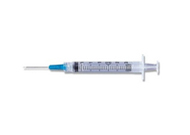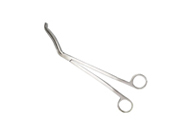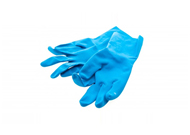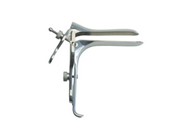



Surgical Supplies are like a surgeon’s helping hand in hospitals. Every instrument plays a crucial role in the process of better health. From gloves to speculums, these crafted tools are the backbone of modern medicine.
With determined precision and dedication, surgical supplies enable skilled hands to restore, repair, and save lives. So, let's get started with how to choose the best quality surgical supplies.
Surgical Supplies are different types of medical tools that help doctors to perform precise actions and get the intended outcomes from surgery. Also, treating, and assisting professionals in performing various tasks such as altering biological tissue or allowing access to view it.
These supplies come in a wide range of medical instruments, devices, and consumables used during surgical procedures. Surgical Tools are essential for maintaining a sterile and controlled environment in the operating room, ensuring the safety and well-being of patients, and aiding healthcare professionals in performing surgical interventions. The selection and use of surgical instruments depend on the specific surgical procedure, patient needs, and the surgeon's preferences.
We know that surgical tools are in the helping hands during surgery, but which tools help with what tasks? These instruments have three categories and different uses for all three:
Cutting Surgical Tools is a vital instrument that helps surgeons perform precise incisions during surgical procedures. These tools provide accuracy and minimize tissue trauma. One standard cutting tool is the scalpel, which consists of a handle and a sharp blade. Scalpels are available in various sizes and shapes, allowing surgeons to choose the most appropriate one for each procedure.
Another essential cutting tool is the surgical scissors, available in different designs such as straight, curved, or angled. These scissors assist in cutting tissues, sutures, or bandages.
Additionally, surgical saws and bone cutters are also used to precisely cut bones during orthopedic surgeries.
Grasping surgical tools is crucial during surgeries, enabling surgeons to hold and operate on tissues and organs precisely. These tools provide a secure grip and control during delicate operations. One commonly used grasping tool is the forceps, available in various sizes and configurations.
Additionally, these instruments also assist in securing blood vessels, controlling bleeding, or holding tissues in place. These grasping tools are typically made of stainless steel and undergo rigorous sterilization procedures to maintain a sterile environment during surgery.
Retracting surgical tools help in surgeries to hold tissues or organs aside and improve visibility and access to the surgical area. They come in various types, such as handheld or self-retaining retractors. Handheld retractors require manual operation, providing flexibility in positioning and adjusting.
Self-retaining retractors have mechanisms to maintain their position, reducing the need for constant manual support. Specialized retractors are designed for specific procedures or anatomical regions. They play an important role in creating a clear surgical field, aiding precision, and ensuring the safety of patients by minimizing tissue damage and facilitating efficient surgical maneuvers.
Here are some main types of surgical supplies necessary for every hospital’s operation theater to perform various surgeries. These supplies help doctors to perform operations fluently and comfortably.
Let’s take a look at these three basic supplies:
Needles and syringes are essential to use in medical procedures. A needle is a thin, pointed instrument with a hollow tube that allows the transfer of fluids or medication. Syringes, on the other hand, are cylindrical devices that hold and administer liquids.
Together, they enable accurate and controlled delivery of medicines, the pulling out of blood samples, and the injection of anesthesia or other fluids during surgeries. For instance, Insulin Needles and Insulin syringes are an example of needles and syringes that help transfer insulin to the body through this.
These sterile instruments are available in various sizes and types to accommodate different medical needs. Proper handling, disposal, and adherence to safety protocols are crucial to preventing the spread of infections and ensuring patient safety.
Surgical gloves are essential protective barriers used by healthcare professionals before performing any medical procedures. They are typically made of latex, nitrile, or neoprene textiles, offering flexibility, comfort, and tactile sensitivity. These gloves create a physical barrier between the wearer's hands and the patient's surgical site, minimizing the risk of cross-contamination and the transfer of pathogens.
They provide a clean environment, safeguarding against infection and maintaining sterile conditions. Proper glove usage involves careful donning and doffing techniques and adherence to hand hygiene practices. Single-use gloves are disposed of after every medical procedure or surgery to ensure optimal safety and hygiene standards.
Speculums are required surgical instruments used in medical examinations and procedures. They consist of two blades that can open or close to facilitate access and visualization of body cavities or openings. Speculums are commonly used in gynecology, urology, and otolaryngology.
They enable doctors to examine the vaginal canal, cervix, urethra, or nasal passages, aiding in the cure of various conditions. These instruments are typically made of stainless steel or plastic and are available in different sizes and designs to accommodate different anatomical needs. Proper cleaning, disinfection, and sterilization protocols are crucial to ensuring their safety and effectiveness.
Surgical Tools are necessary medical instruments for every hospital and doctor and make it easy for professionals to perform their tasks fluently and easily. Hence, this guide will help you with information about surgical supplies and find which supplies are suitable for your operation theater.
That’s why Healthcare Deliveries provide you with the best high-graded medical products from all the best sellers on one website. We Assure you a better experience and easy product comparison from different sites only on one website.
Surgical supplies come in 2 different kinds– Disposable instruments and Reusable instruments. Disposable instruments are supplies that are used once and Reusable are used many times after sanitization.
An appropriate way to store these supplies is to clean and sanitize them after surgery or operations. You should store these supplies in a dry and cold place.
Yes, you can order customized medical tools from suppliers who allow you to customize their medical kits and other medical supplies.
Surgical supplies help doctors perform precise actions and get the intended outcomes from a surgery or treatment, assisting professionals in performing various tasks.
To ensure the quality of medical supplies, review your distributor profile and the product review by previous buyers, and check if your medical tools are from a branded company and what material is used in making these medical instruments.